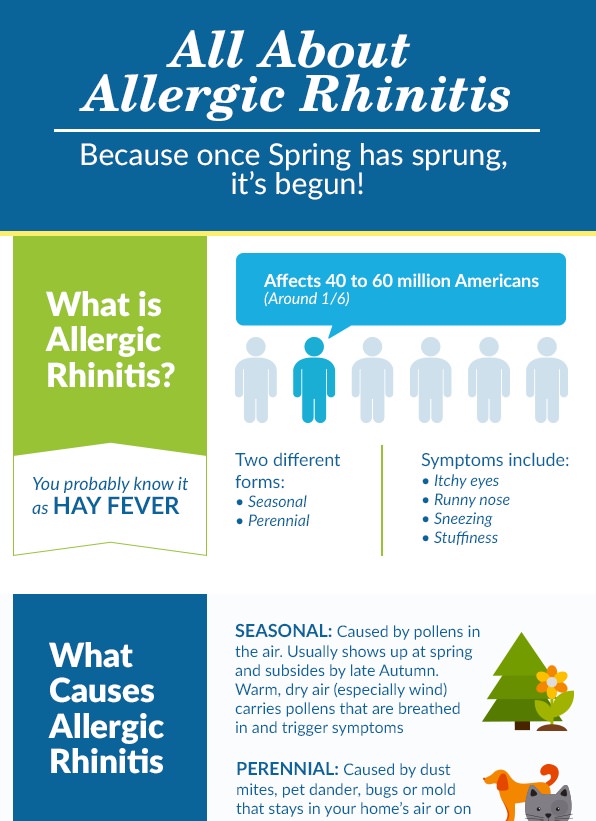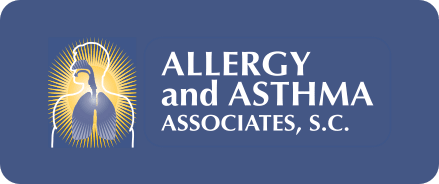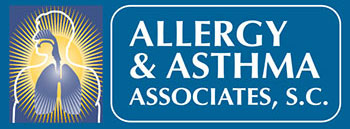Hay Fever (Allergic Rhinitis) Treatment in Appleton and the Fox Cities.
Are You Sneezy, Itchy, Drippy, or Stuffy?
What is Allergic Rhinitis?
The symptoms of allergic rhinitis (called hay fever sometimes, but not caused by hay or fever) are caused by exposure to substances (allergens) to which the patient has become sensitized. It may also encompass itchy, watery eyes and an itchy throat and/or palate.
Allergic Rhinitis Info:
What is Allergic Rhinitis?
– What causes allergic rhinitis
– Its symptoms and side effects
– How to treat allergic rhinitis
– What an allergist can do

How Do You Know What Kind of Rhinitis You Have?
Ask us! Sometimes, several of the above conditions can coexist in the same person. In a single individual, allergic rhinitis could be
complicated by vasomotor rhinitis, septal deviation (curvature of the bone separating the two sides of the nose) or nasal polyps. Any of
these conditions will be made worse by catching a cold.
We use a skin test to mirror a type of reaction going on in the nose and determine if you have rhinitis and what kind you may have.
Rhinitis Symptoms:
– Sneezing and Stuffy Nose
– Runny Nose (Rhinorrhea)
– Itching (Pruritus)
– Nasal Drip
These symptoms are the nose’s natural response to inflammation and irritation.
Not everyone with symptoms of rhinitis has allergies and not everyone with allergies has rhinitis.
Not all symptoms in the nasal passages are caused by allergy or infection.
Can be caused by mechanical blockage, use of certain medications, irritants, temperature changes or other physical factors.
Aeroallergens Are the Culprit!
Allergic rhinitis is caused by the pollens from trees, grass, weeds, mold spores, animal dander, and house dust mites. When
the pollen count is high, people suffering from a pollen allergy are most susceptible to allergic reactions. People can also have year round indoor allergies to dust mites and dog / cat dander.
When Nasal Spray Goes Bad
Use of over-the-counter decongestant nasal sprays for chronic sinusitis, septal deviation or vasomotor rhinitis may cause rhinitis
medicamentosa. Rhinitis medicamentosa is a rebound of nasal congestion caused by prolonged usage of nasal sprays. Fortunately, it
can be easily treated by simply replacing or removing the nasal spray.
The 3 Benefits of Hypertonic Saline Irrigation
2. It decongests the nose. Because of the high salt concentration, fluid is pulled out of the membrane.
This shrinks the membrane, which improves nasal airflow and opens sinus passages.
3. It improves nasal drainage. Studies have shown that saltwater cleansing of the nasal membranes improves cilia beating so that normal mucus is transported better from the sinuses through the nose and into the throat.
Please Note:
saltwater before utilizing the nasal steroid. The nasal steroid is most effective when sprayed onto clean nasal membranes, and
it reaches deeper into the nose after cleansing and decongestion.

